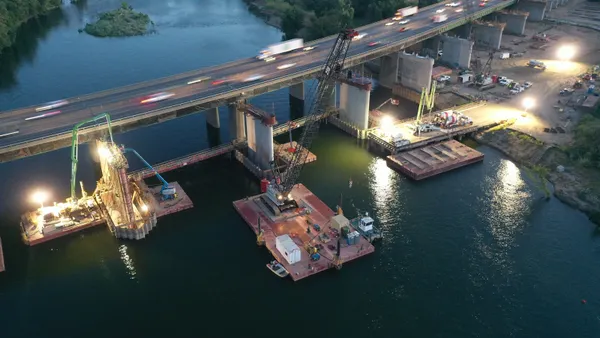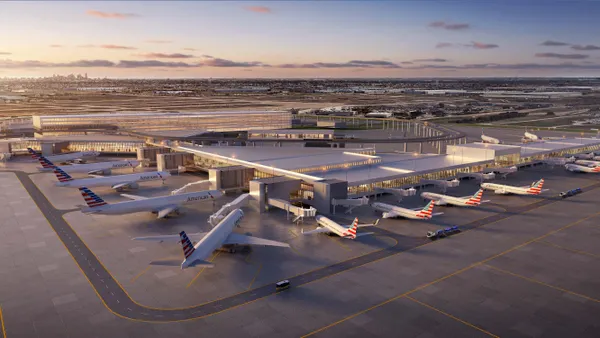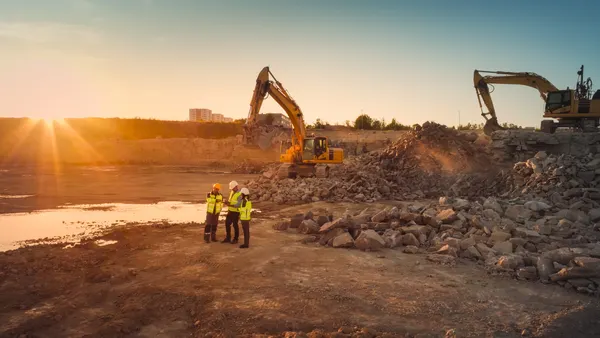Dive Brief:
- A U.S. PIRG Education Fund and Frontier Group report, "Highway Boondoggles 4: Big Projects. Bigger Price Tags. Limited Benefits," has classified nine proposed U.S. highway projects collectively worth $30 billion as wasteful and unnecessary.
- The report said these and other highway expansion projects take money away from critical highway and transit maintenance backlogs, as well as from potential investments in public transportation; have left state agencies billions of dollars in debt; increase congestion by bringing new drivers to the roads and don't deliver the promised economic benefits. U.S. PIRG's and Frontier's list of boondoggle projects include Maryland's $9 billion anti-congestion highway plan; Wisconsin's $1.7 billion-$1.9 billion Interstate 94 expansion around the future $10 billion Foxconn campus in Mount Pleasant, Wisconsin; an $8 billion expansion of Interstate 35 through Austin, Texas, and the $7 billion widening of the Pennsylvania Turnpike.
- Brian Turmail from the Associated General Contractors of America told Bloomberg that the U.S. needs to expand the capacity of its highway systems and said that there is a correlation between economic activity and the number of vehicles on the road. Turmail also said north-south routes need particular attention because early highway design focused more on east-west arteries.
Dive Insight:
These projects also often have a revenue component to them, in addition to providing relief to motorists. For example, part of the Texas Department of Transportation's planned expansion of Interstate 35 in Austin includes the doubling of existing toll lanes. Maryland Gov. Larry Hogan's multi-billion plan to expand Interstate 270, the Capital Beltway and the Baltimore–Washington Parkway also involves the addition of express toll lanes.
These highway initiatives, however, are more likely to see resistance from environmental groups than they are from those who want the money spent on maintenance or public transportation.
In August, a U.S. District Court judge tossed out lawsuits brought by conservationist groups that tried to stop three other Austin-area highway projects from moving forward. The Save Our Springs Alliance and the Center for Biological Diversity claimed that the three projects were so interdependent that transportation officials should have to conduct one single environmental study that addresses them all. If the judge had found in the activists' favor, the projects would have likely been delayed by years.











